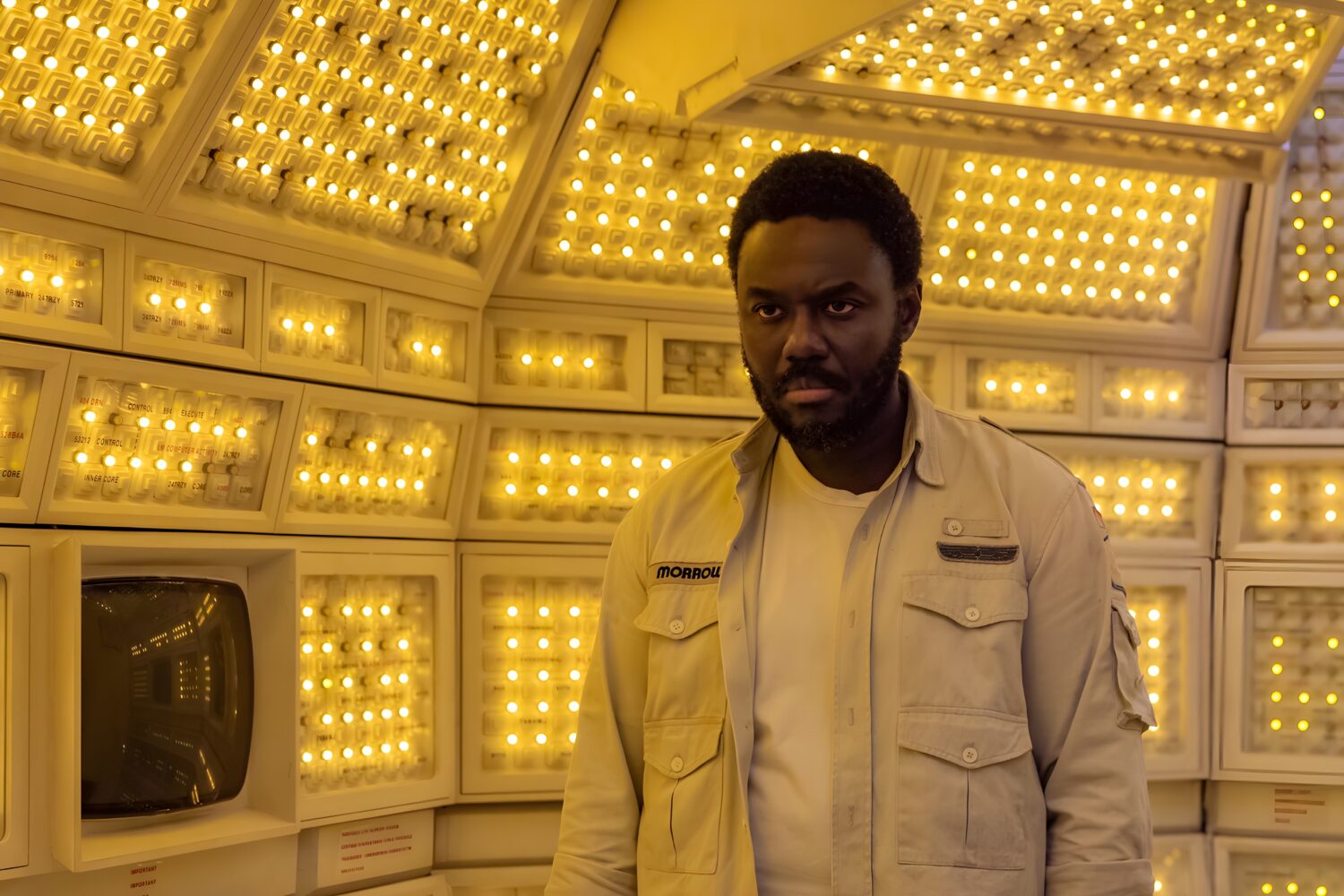TL;DR: Episode 5 of Alien: Earth revisits the doomed Maginot, delivering one of the franchise’s most tragic stories. Equal parts xenomorph chaos and human betrayal, it sets the stage for Morrow’s revenge against Boy Kavalier. A bleak, terrifying, but deeply compelling hour of television.
Alien: Earth
When Alien: Earth first premiered, I braced myself for disappointment. Not because I thought Noah Hawley couldn’t handle it—he’s been juggling existential dread and kaleidoscopic narrative tricks since Fargo—but because the Alienfranchise has this uncanny ability to eat its own children. Every time a new project in this universe is announced, we cycle through the same emotional loop: cautious optimism, hype, backlash, arguments about continuity, then a final, exhausted “well, at least the xenomorph still looks cool.”
Episode 5, titled “In Space, No One…”, is where Alien: Earth finally leans into the tragic inevitability of its own setup. It pulls us back to the Maginot, the ill-fated ship that’s been haunting the background since the pilot. You know how sometimes you’re playing a horror video game—say, Dead Space or Resident Evil 2—and you wander past a locked door or a pile of corpses, and your brain goes, “yep, at some point, the designers are going to drag me back here, and it’s going to be hell”? That’s this episode. We knew we were going to have to watch the Maginot’s descent into chaos. We just didn’t know how ugly, or how intimate, it was going to feel.
And let me tell you: this is the episode where the gloves come off.
The Return to the Maginot
The words hit the screen: “17 days from Earth.” And just like that, we’re yanked back in time, before Wendy’s hybrid revelations, before corporate conspiracies were spelled out, before we had the faintest clue that this show wasn’t just about xenomorphs—it was about sabotage, betrayal, and the sheer stupidity of human greed.
Morrow (played with surgical precision by Babou Ceesay) is roused from sleep because there’s a fire on the Maginot. Fires in space are already bad enough, but when you throw in alien specimens—including one that looks like it crawled out of Junji Ito’s sketchbook—it’s a recipe for carnage.
Within minutes, the captain is dead. Facehuggers are latched onto crew members. The navigational system is fried, meaning the Maginot isn’t a spaceship anymore, it’s a warhead aimed at Earth. And instead of rational leadership, we get Yutani protocols and cold corporate logic: protect the cargo at all costs, no matter how many lives are lost.
Watching this play out, I had that same sinking feeling I did during my first viewing of Alien 3. Not because the plot beats are the same, but because the tone is so suffocatingly fatalistic. We already know these characters are doomed. What we’re really watching is how they’ll fall apart on the way down.
Monsters, Inside and Out
What I loved most about this episode is how it refuses to lean only on the xenomorph for scares. Don’t get me wrong, there’s plenty of acid blood, chests bursting, and that deliciously primal terror of being hunted by something smarter and faster than you. But the real horror here comes from the smaller, weirder specimens—the leech that contaminates water, the eyeball-octopus (scientifically classified as T. Ocellus) that learns and manipulates like some Lovecraftian Pokémon.
There’s something about watching Malachite unknowingly drink the contaminated water that just got to me. It reminded me of being a kid and sneaking sips of soda at a party, not knowing someone had just used the same glass as an ashtray. That creeping dread of “oh no, I can’t undo this” is the kind of grounded, bodily horror that makes the Alien universe feel less like science fiction and more like an extension of our nightmares.
And then there’s Chibuzo, studying the specimens like every scientist in this franchise inevitably does, believing she can control what she doesn’t understand. The way the eyeball creature watches her with almost childlike curiosity—it’s disturbingly intimate. By the time it breaks free, you don’t feel like you’re watching an “alien escape scene.” You feel like you’re watching a prison break where the prisoner is already three steps ahead of its jailer.
The Saboteur and the Tragedy of Morrow
But here’s the thing: Episode 5 isn’t just about creatures running amok. It’s about sabotage, human betrayal, and one man’s grief metastasizing into obsession.
We discover that Petrovich, one of the crew, has been secretly communicating with Boy Kavalier, that cold-blooded corporate wunderkind who feels like Elon Musk’s evil twin. Petrovich isn’t just a traitor; he’s a coward bargaining for synthetic immortality. It’s such a classic Alien twist: the monsters aren’t the only monsters. The people you thought you could trust are working against you, in service of something even more grotesque.
And at the center of it all is Morrow. Up until this point, he’s been portrayed as emotionally frozen, almost robotic in his adherence to duty. But through flashbacks, we learn about his daughter—the letters he reads, the fire that killed her. Suddenly, he isn’t just another stoic space officer. He’s a man hollowed out by grief, clinging to whatever remains of his humanity while the world demands he give even that away.
When he finally kills Petrovich, it doesn’t feel like a victory. It feels like putting down a rabid dog. And when he seals himself in the control room, cutting off Zaveri to her fate, it’s not cruelty—it’s inevitability. He’s already chosen his path: protect what little dignity he has left, even if it means damning everyone else.
The Unholy Union: Eye vs. Xeno
One of the wildest moments comes near the end, when the eyeball parasite actually tries to merge with the xenomorph. I don’t know if I should call that scene horrifying or hilarious, but it hit me like the first time I saw the dog-alien hybrid in Alien 3. It’s the franchise saying: “Oh, you think you’ve seen everything? Watch this.”
It’s also a terrifying reminder of just how adaptive and unstoppable these creatures are. Acid blood, super strength, parasitic reproduction—that was already nightmare fuel. Now imagine them evolving further, absorbing intelligence from other species. It’s a nightmare within a nightmare, a thought spiral you don’t want to follow too far if you’d like to sleep tonight.
Earthbound, At Last
The episode closes with Morrow on Earth, speaking with Yutani. His mission is clear: he’s going after Boy Kavalier. The xenomorphs may be the physical threat, but Kavalier is the true monster here, the one pulling strings, orchestrating betrayals, sacrificing lives for data and profit.
And this is where Alien: Earth finally clicked for me. It’s not just about the creatures. It’s about the ecosystems of greed and cruelty that make their existence possible. The xenos don’t invent hierarchies. They don’t manipulate. They don’t profit. They just survive. It’s humanity—and its corporations—that create the real horror.
Final Thoughts
Episode 5 is a pivot point for Alien: Earth. By returning to the Maginot, it grounds the series in inevitability and tragedy, showing us not just what happened, but why it matters. The scares are inventive, the character work deepens, and the setup for future confrontations—especially between Morrow and Kavalier—feels earned.
“In Space, No One…” is where Alien: Earth stops teasing and fully commits to the tragedy of the Maginot. The horror isn’t just in the chestbursters or acid blood, but in betrayal, sabotage, and the slow realization that humans will always find a way to make a bad situation worse. It’s gripping, unsettling, and the most Alien episode of the series so far.







